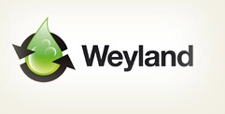Weyland AS was established in 2001 by Karl Weydahl and Knut Helland in order to commercialize technology for production of ethanol from cellulose, so-called second-generation bioethanol. The technology is a result of research and development conducted in cooperation with the Bergen University College since 1987. The Weyland technology is now ready for commercial application.
Pilot plant
Sponsored by our partners, including Statoil and Innovation Norway, Weyland has built a pilot plant with a capacity equivalent to approximately 200,000 liters ethanol output per year.
The Pilot plant was officially opened in October 2010. Operation of the pilot plant during 2011 and 2012 has given us valuable experience and useful process data, proving that our technology is highly competitive. We have since then demonstrated that the Weyland process related to the recovery and recycling of the acid works as intended.
The purpose of the pilot plant is to verify and document the unique features of the process, and to demonstrate the commercial viability of the technology.
The pilot plant also serves as a platform to scale the technology towards commercial size plants, and is well suited to run comprehensive experiments with different types of feedstock in semi industrial scale.
Technology
The development of the Weyland process started in the laboratories at the Bergen University College in 1987. Our technology is based on concentrated acid hydrolysis, which enables production of industrial sugars from cellulose-containing materials.
The results have proved that the process is very robust and provides a high yield, independent of feedstock types.
The Weyland technology provides the users several competitive advantages:
- The process can be driven by waste heat; hot water and < 4 bar steam.
- Feedstock to fermentable sugars in less than 5 hours.
- Low inhibitor concentration in sugar gives rapid fermentation.
- Compliant with EU’s sustainability requirements (DnV certificate).
- Very good industrial scalability



 Member
Member